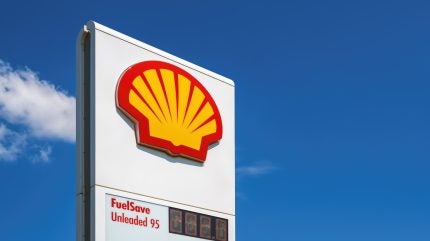
Shell has determined that an oil discovery off the coast of Namibia is not commercially viable, leading to a projected write-down of around $400m (£325.52m), reported Reuters.
This decision is a setback for Namibia’s ambition to establish itself as an oil producer.
In a recent statement to Reuters, Shell said that the hydrocarbon resources found in offshore block PEL39 “cannot currently be confirmed for commercial development”.
This follows a discovery made in 2022 by Shell, alongside partners QatarEnergy and Namibia’s national oil company, NAMCOR, which initially generated considerable international interest.
PEL39 covers 12,000km² and its ownership structure consists of Shell Namibia as the operator with a 45% working interest (WI), QatarEnergy with a 45% WI and NAMCOR holding the remaining 10%. The final investment decision (FID) is anticipated in 2026, with the first oil production expected by 2030.
Despite drilling nine wells in the licence areas Cullinan-1X, Enigma-1X, Graff-1A, Graff-1X, Jonker-1A, Jonker-2A, Jonker-1X, La Rona-1X and Lesedi-1X over the past three years and making multiple discoveries, Shell has faced technical and geological challenges. These difficulties have hindered the development of the discovered resources.
Compounding the issue, sources say that the offshore discoveries contained a high concentration of natural gas, adding complexity to their development.
This has influenced Shell’s recent trading update, which predicts an exploration write-off of around $400m, ahead of its fourth-quarter (Q4) results due on 30 January.
Shell has lowered its Q4 liquefied natural gas (LNG) production outlook to 6.8–7.2 million tonnes due to reduced feed gas and cargo deliveries. The company expects less oil, gas and LNG trading results compared with Q3, partly due to expiring hedging contracts linked to the 2022 Russia-Ukraine conflict.
Additionally, the company expects to take post-tax impairments of $1.5bn–3bn, which includes up to $1.2bn from its renewables division. Additionally, trading in Shell’s chemicals and oil products division is expected to be much lower compared with the previous quarter due to reduced seasonal demand.
Furthermore, Shell expects to incur an additional write-off of $300m, primarily related to exploration licences in Colombia.


